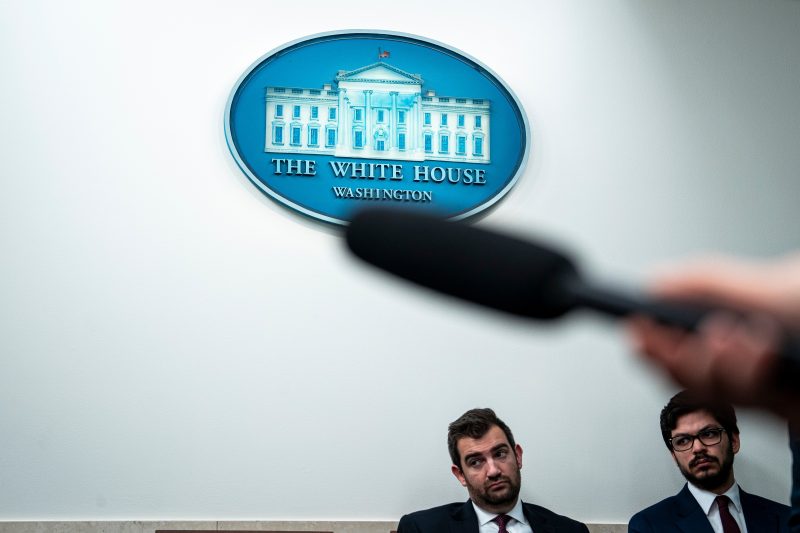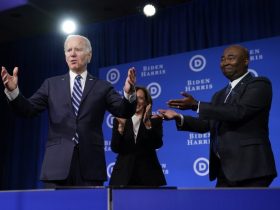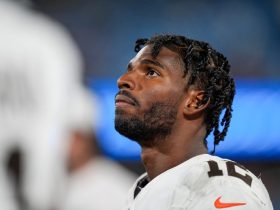It is a grim time to be a member of the news media. Many people (though presumably few here at The Washington Post) see this as karma, if not good news: They view the media as having failed at its basic task of informing the public.
That sentiment is particularly acute in the realm of political coverage. Donald Trump has spent nearly a decade excoriating the press for its alleged failings — failings that tend to correspond to coverage of his false statements.
But while Trump’s rhetoric is often among the most virulent, this isn’t solely downstream from Trump. (Trump himself, of course, was simply picking up and amplifying a long-standing trend on the right to cast the media as opponents.) In recent years, there’s been particularly acute criticism from the left as well, complaints that coverage is insufficiently generous to the left or overly hospitable to the right and to Trump.
Americans simply don’t trust the media, particularly when it comes to politics. Swing-state polling from The Post and the Schar School of Policy and Government at George Mason University found that only 3 in 10 residents of six of the most important states in this year’s presidential election trust that the media will fairly and accurately report political news. Seven in 10 indicated that they had not too much trust in that occurring — or that they had no trust at all.
As you might expect, this lack of trust was more pronounced on the political right. Only 13 percent of White evangelical Protestants in those states, for example, indicated that they had trust in the media to fairly report on politics. The other 87 percent didn’t. Those who indicated that podcasts or X (once Twitter) were a main source they used for news were much more likely than swing-state voters overall to indicate skepticism about political coverage.
The Post-Schar School poll determined that only a handful of groups — Democrats, those who listen to NPR, those who view President Biden’s reelection bid with satisfaction — had more trust than distrust in media coverage. Even among other groups that lean toward Biden, like those with advanced college degrees, there was far more distrust than trust. (Among those with advanced degrees, the results was nearly a 2-1 ratio.)
The Post-Schar School poll is centered on voters who are most likely to determine the outcome in those states, a group dubbed the “deciders.” Members of that group were much more distrustful of the media than voters in those six states overall.
What the numbers also suggest is that those who are less engaged in the political process have less trust in the press. There’s also a correlation between these results and those from another question included in the poll: Those who have less confidence in the media’s coverage of politics are also more likely to say that they are “worn out by the amount of politics news there is these days.”
As bad as the numbers on media trust are, the numbers on exhaustion with political news are far worse. Seven in 10 swing-state voters expressed at least some distrust in media coverage; three-quarters said they were worn out by it. The group least likely to express news fatigue was those who said they were satisfied with both Biden and Trump as candidates — a small and unusual group in a number of ways.
Among those with the most trust in the media’s ability to cover politics fairly were those who said that national newspapers were a main source of news for them. Seven in 10 of them — of you, probably — nonetheless indicated that they were worn out by political news.
So I should probably just wrap this up.








